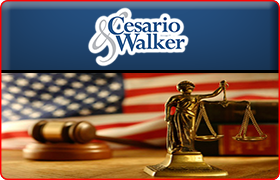Eola Divorce & Family Law Lawyers, Illinois
Sponsored Law Firm
-
 x
x

Click For More Info:
-
Cesario & Walker
211 W. Chicago Ave., #118 Hinsdale, IL 60521» view mapFamily Law, Civil Litigation, Personal Injury Your Goals Are Our Primary Focus
Our mission is to deliver, committed, knowledgeable and efficient legal services to you by giving you direct access to us, your attorneys.
800-867-9670
Sponsored Lawyers
1-10 of 44 matches
Divorce & Family Law, Divorce, Family Law, Child Custody, Child Support
Kendall County divorce lawyer Matthew Williams is an experienced family law attorney trained on the ins-and-outs of divorce litigation. In addition, Mr. Williams has also been trained in the collaborative law approach to divorce resolution. My law firm represents clients in Kane County, DeKalb County, DuPage County, and Kendall County. For nearly a decade, I have focused entirely on divorce, paternity (parentage), establishment and modification of support, parental rights, enforcement of divorce decrees, and other family law-related matters. I have litigated numerous divorce and parentage matters and know how to litigate yours. More importantly than that, I focus on keeping your case out of the courthouse as much as possible. That helps keep costs down and can actually expedite many cases. To schedule an appointment with an experienced Aurora divorce attorney, visit our website or call 630-409-8184.
(more)Real Estate, Tax, Divorce & Family Law, Estate Planning, Personal Injury
Monica P. Patankar is a partner with the law firm of Patankar Law P.C. Monica takes a compassionate approach to helping clients solve their legal issues. She listens to each story carefully and understands that no two issues are alike. Monica's legal training and experience have prepared her to handle your legal needs. Monica gained her legal knowledge at University of Notre Dame Law School in Notre Dame, Indiana. Upon graduation, Monica worked for a large law firm, Chapman and Cutler LLP in Chicago, Illinois. At Chapman, Monica worked with large municipalities and other governmental entities to raise capital for large infrastructure projects. After working for Chapman, Monica also had the opportunity to focus her legal acumen on individuals with family law issues and businesses handling general litigation and transactional matters, before forming Patankar Law P.C. Moreover, through her previous work experiences, she gained an interest in taxation and furthered her education at Washington University in St. Louis, School of Law receiving an LL.M. in Taxation. Monica is trained as a Guardian ad Litem, an attorney that is appointed to determine what is in the best interest of the minor children, in Kane, DuPage, and Kendall Counties. To schedule an initial consultation with a skilled Aurora Tax Attorney, call 630-820-8877.
(more)Divorce & Family Law, Child Support, Child Custody, Criminal, Personal Injury
Dion U. Davi is the principal and founding attorney of Davi Law Group, LLC, a private practice dedicated to helping those in need. Knowledgeable in many areas of law, Attorney Davi concentrates his practice on family law, divorce, estate planning, personal injury, and criminal defense. Committed to providing legal representation to many different clients, Attorney Davi has offices located in Naperville, Wheaton, Joliet, Chicago, and Plainfield, Illinois. Additionally, Attorney Davi handles motorsport business legal matters, including motorsport business company formation, contracts for motorsport businesses, operations management, and more. To schedule a free consultation with Attorney Davi, visit his website, or call 630-657-5052.
(more)Divorce & Family Law, Child Custody, Child Support, Paternity, Adoption
Calabrese Associates, P.C., is a firm that offers caring and personalized legal services for people dealing with difficult family challenges.
(more)



 Daniel Walker Hinsdale, IL
Daniel Walker Hinsdale, IL About MeProfessional Experience
About MeProfessional Experience Contact UsCall or Email
Contact UsCall or Email




